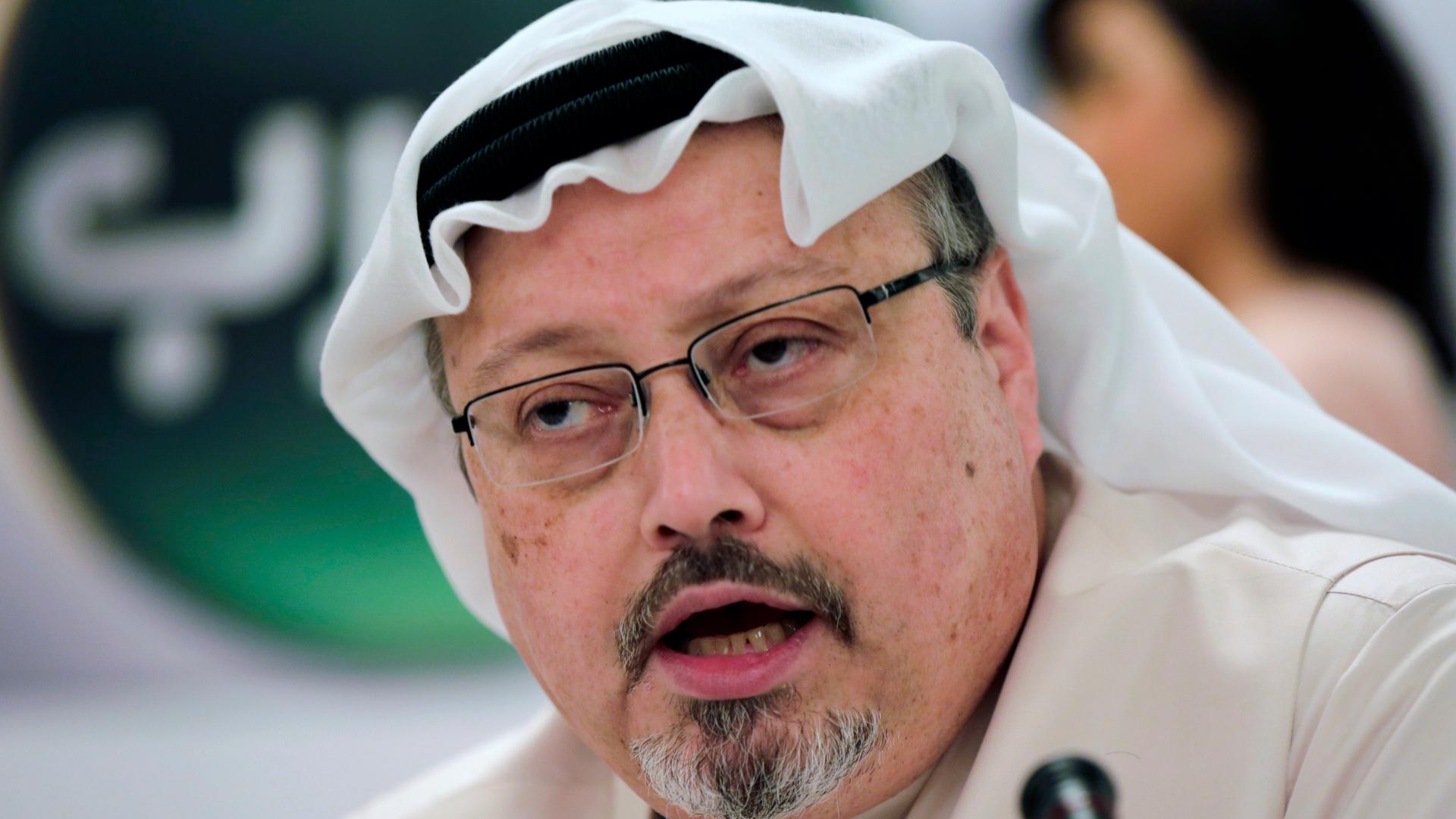The murder of Jamal Khashoggi continues to leave its mark on global affairs.
A year after the gruesome murder of the Washington Post columnist Jamal Khashoggi, the incident still makes waves worldwide. New revelations keep coming to light about the horrific circumstances surrounding the case.
Globally, this affair tarnished Saudi Arabia’s political reputation. Before this incident, many quarters, inside Saudi Arabia and throughout the region, grew increasingly disillusioned with the Saudi political agenda in the region, ranging from Riyadh’s genocidal war in Yemen to the blockade of Qatar.
However, the Khashoggi assassination was the straw that broke the camel’s back as it brought criticism of the kingdom to a whole new level, which took the Saudi leadership by surprise, particularly the crown prince.
It is, therefore, no surprise that the killing of Khashoggi features high on the agenda of the upcoming TRT World Forum 2019, entitled “Globalisation in Retreat: Risks and Opportunities.”
At the forum, a key session will be dedicated to this issue, especially that its significance has transcended the political field into the diplomatic, legal, media, and religious realms.
The incident’s wide-ranging importance is evident in the snowball effect that undermined the status of Saudi Arabia in Washington to an extent never seen before. In recent months, American legislators from both parties introduced several resolutions that not only challenged the Saudi policy in Yemen but also paved the way to the condemnation of Riyadh’s human rights abuses.
US senators went to the extent of voting to block arms sales worth billions of dollars to Saudi Arabia and the United Arab Emirates (UAE) to send a strong signal to both governments.
Through his executive powers, President Trump managed to circumvent congressional sanctions for the time being, however, many experts believe that the US-Saudi partnership has been damaged and that a complete overhaul of this partnership is a real possibility should a Democrat be elected president in 2020.
Similarly, the Khashoggi murder has proven a test for the European Union (EU). Saudi aggression in Yemen and elsewhere in addition to brutal domestic policies and human rights abuses have dashed hopes of positive change.
While the EU has failed to produce a standard policy towards Saudi Arabia as some member-states, mainly the UK and France, continue to look at the relationship with Riyadh from the prism of national interests and particularly the lucrative arms deals.
On the other hand, the ruling coalition in Germany temporarily halted new sales of weapons to the warring parties in Yemen. Moreover, there is growing unease in civil society across Europe. Consequently, Saudi vessels are regularly prevented from loading their arms cargos by human rights campaigners.
Echoing the global outcry, the United Nations’ Special Rapporteur on extrajudicial executions, Agnes Callamard, released a damning UN report that provided many details about the vicious slaying of Khashoggi. The UN-appointed rights investigator labelled the latter “an international crime,” placing official responsibility on Saudi Arabia, and stating that there was sufficient evidence to warrant a criminal investigation of senior Saudi officials, including the Crown Prince Mohammed bin Salman.
The reverberations of the Khashoggi killing ended up also provoking tensions between Riyadh and its closest ally, Abu Dhabi. Recently, the UAE has distanced itself from Riyadh, and cracks began to appear between both parties, not only in Yemen but also vis-a-vis Iran. The UAE sent a delegation to Tehran, back-pedalling from the earlier anti-Iran rhetoric and steering clear from the escalation between the Trump administration and Saudi Arabia on the one hand, and Iran on the other.
There are countless other ramifications of the Khashoggi affair that could be highlighted, however, there is one key aspect that was not sufficiently underscored by media. Riyadh has lost the battle for hearts and minds in its quest to assert religious leadership over the Muslim World. There are mounting calls from Muslim scholars to boycott the pilgrimage in Mecca and Medina, reflecting the perception that Saudi leaders have lost the legitimacy to rule over the most sacred places in Islam.
For example, Libya’s grand mufti Sadiq Al Ghariani, called on Muslims aiming to perform a second pilgrimage to refrain from doing so. The reason, according to him, is that the money pilgrims must pay to Saudi Arabia for pilgrimage will “help Saudi Arabian rulers to carry out crimes against our fellow Muslims.”
The Saudi leadership, sensing the start of a change in religious dynamics, held three conferences in Mecca at the end of May 2019, including the ordinary 14th meeting of the Organisation of Islamic Cooperation (OIC) as well as the Gulf and Arab League emergency summits.
The purpose for these summits was to create a seemingly united front against Iran, and urging the international community to take “strict measures” against Tehran. However, these moves were considered by some observers as an attempt to mask the problems caused by Saudi policies in the first place.
Meanwhile, articles, reports, books, seminars and conferences will keep dwelling on the Khashoggi assassination. The latter has become a textbook example of how seemingly small, albeit gruesome events, have detrimental and long-lasting geopolitical effects.
Author: Tarek Cherkaoui
Dr. Tarek Cherkaoui is the author of “The News Media at War: The Clash of Western and Arab Networks in the Middle East”. Cherkaoui is an expert in the field of strategic communications.
Source










Discussion about this post